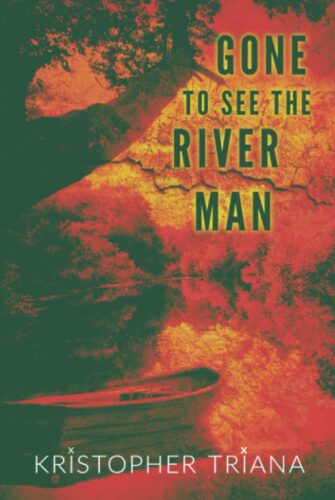 The Cost of Love
The Cost of Love
Author: Kristopher Triana
Obsession is a dark thing. What squirms out of its fetid corpse in the night is not love, but violence, desperation, depravity. This, then, is a story of obsession. One tainted by the twins of envy and jealousy, of one woman’s descent into darkness for meaning.
Lori has been talking to serial killer Edmund Cox for years. It started with letters, but she has also visited him in prison a few times. The darkness in Edmund that led him to target and torture women, an evil that remains un-repented, corresponds to something in Lori’s twisted soul. They are simply meant to be, and their actions have wedded them. But, of course, Cox has other fans, other women who visit him, who are willing to pledge their all. To finally get the man, to finally be seen and loved and wanted by someone equally as flawed, with a grim past that mirrors her own, Lori must take on a quest for Edmund. She has to go up the river to his old cabin, find the key, and bring it to a mysterious, mythical figure: the River Man. Is this River Man a demon, a person? Lori isn’t sure. What she is sure of, though, is Edmund. And so, she begins the trek. But there’s a complication. Lori’s orphaned siter, Abby, cannot be left alone. Abby, with her brain damage and dependencies, is child-like, dependent, desperate. For all her evil, Lori cannot let go of this one duty, and so the pair walk through the stormy woods of Killen together, searching for the key, the River Man, and Lori’s bloody future.
When I first read the write-up for Gone to See The River Man, I was unimpressed. I’ve never understood the super fan / groupie ideology, especially for killers, and I don’t find it particularly fascinating. But (and you’ve heard this many times) it was a book club pick. I like to challenge myself to always read the pick, even if it wasn’t one for which I voted. That’s how you discover new voices, new interests. This time, my determination was vastly rewarded. Kristopher Triana can write, and the story is not just macabre to be spooky. It has a sharp point, embedded in the twisted story of misplaced, rotten longing.
We start in Lori’s head, and so, we’re close to her and more or less forced to empathize. We don’t understand WHY Lori wants this serial killer or how she justifies his actions. We only get bits and pieces along the way. But what we do see does not leave us distanced. This is the sinister magic of the tale. Lori does seem lonely, crushed by responsibility, caring for herself and her adult, but mentally and physically disabled sister. Perhaps this is just a good woman desperate for some company. We WANT to justify her, even as we fear for her. This is the first stroke of genius, one that will slowly unravel our perceptions. If you expect our point of view character to be basically good, you have another thing coming. But, of course, by the time the revelations drop, we’re already invested, already stuck in the mind of what we presumed was a normal person. It’s too late to escape then, and so we hate Lori, yet we cannot wish her harm or abandon her. Genius. And the stuff of nightmares.

Image by Izabella Jasper from Pixabay
Gone to See The River Man weaves between two timelines: the search through the woods for the cabin and later the journey up a river t to find the wish-granting demon. Slowly, the past unravels itself and answers our questions. The timing of the revelations is inspired, and as Lori’s story becomes more and more corrupt and her true character is revealed, the river itself starts to transform, the land becoming a nightmarish scene of gore and demonic laughter. We are possessed by the past, and the present is subsumed by a hellscape. The characters, however, are too far gone. The ultimate meeting is about to take place.
The story is grim, and the trigger warnings cover just about everything (abuse, incest, rape, murder, torture, ad infinitum). It starts out as a story that seems like a run-of-the-mill thriller; it is anything but. The moral is a bleak one. This is what envy does, how it decays the soul. This is what true evil looks like, how it justifies itself, and how it is ultimately as weak as the desperate, worthless character whom it corrupts and maneuvers. This is a story of pride. This is a story of spiritual rot and the repercussions. It’s not for the faint of heart, but it is astonishingly well wrought and justifies its darkness. The end points back to the ultimate pointlessness of evil, the way that self-seeking turns inward into a cultish and ultimately suicidal desire for love, however perverted. How the selfish person ultimately seeks renewal through something pure (love), but how that purity becomes sullied and turns, knife sharp, on its seeker. Evil corrupts, and the good it seeks rots from the inside too. Recommended, but beware. This novel will hit some hard topics and dig straight into them, tunneling to the cancerous, extreme core.
– Frances Carden
Follow my reviews on Twitter at: https://twitter.com/xombie_mistress
Follow my reviews on Facebook at: https://www.facebook.com/FrancesReviews
- Book Vs Movie: The Shining - April 6, 2020
- Thankful For Great Cozy Mysteries - December 13, 2019
- Cozy Mysteries for a Perfect Fall - October 20, 2019

